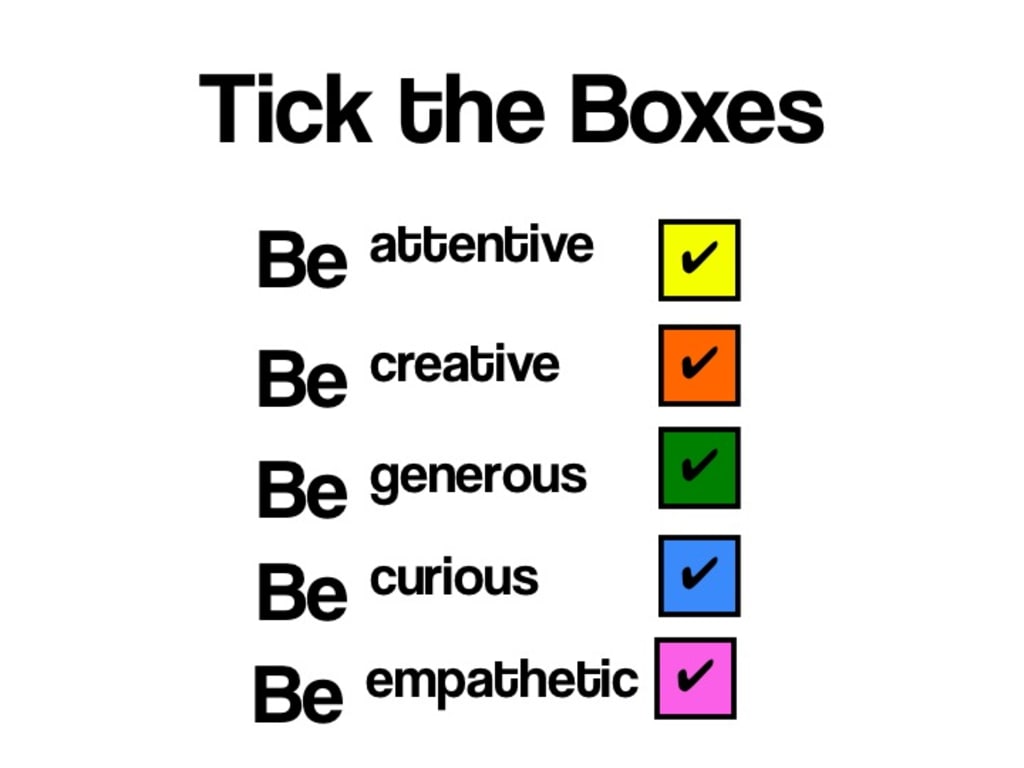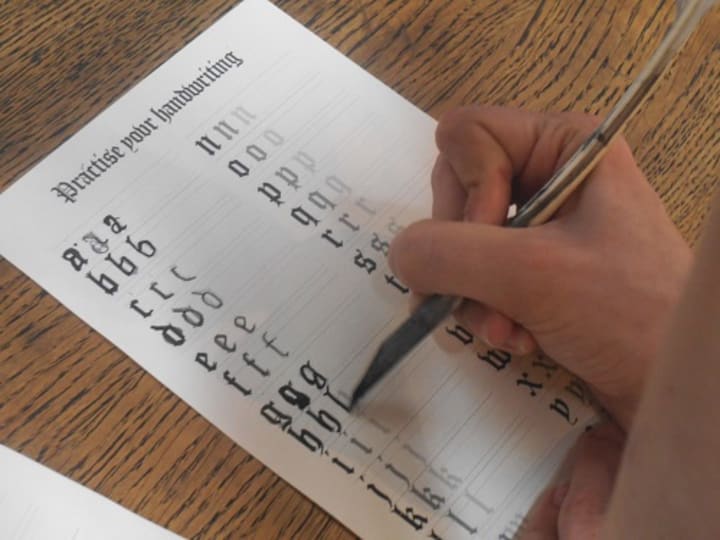Tick Box
Uncomfortable interview questions

Sometimes, it is necessary for us to put ourselves into categories. This may be frustrating, we may not know where to place ourselves. There is a good chance that, when given a 'tick-box' exercise, we fit in to multiple categories—or even that we do not feel we meet the criteria for any of the choices offered to us.
It can be worrying when we feel we are going to be judged on a certain aspect. Will we miss out on an opportunity because of our past? Will we be seen in a bad light because of a stereotype?
When looking for work, there are a number of questions that make us feel uncomfortable. We do not always know what to say in interviews. There are certain things that a potential employer may need to know. It is difficult, though, to know how much information to give, and where to draw a line.
When Pigeon-Holing is an Advantage
Pigeon-holing does not always do us any favours. There are many times when we must meet certain criteria. We may wish to access a certain service that is only available to people of a particular age, or who have a specific educational background. Such cherry-picking does serve a purpose, but can also feel that we are missing out, because of what may be an arbitrary detail.
We are often asked to put ourselves into categories. We might be asked to define ourselves by making a single choice from a list when we fit multiple. We may feel that we do not fit into any, and, as a result, may consider this to be discriminatory.
Where this type of pigeon-holing is advantageous might include such times as, for example, positive discrimination. That is to say there are a number of services designed to help people whose backgrounds would be considered disadvantaged. Schemes intended for such people will offer opportunities that they would not otherwise have.
There may be all sorts of situations in which we are asked to categorise ourselves, or when we are asked questions that we are unsure of how to answer. Job interviews are, perhaps, one of the most daunting experiences. Different people will find different questions uncomfortable. The following are some of the most common.
Why do you want to work here/why do you want this contract?
The truth about this is that most people are in an interview for a job, because they need a job. Of course, if you are lucky enough to be talking about something you really love then this question may seem less challenging.
Society and individuals discriminate all the time. Should you tell them that it is better suited to your out-of-work commitments? Is it appropriate to admit that you simply did not get on well with others when asked your reason for leaving your last post?
We might choose to conform, to become something and someone we did not choose to be. This is often the easy route—finding that our individuality and uniqueness does not make us stand out in the way we had hoped. We can, however, choose to embrace our differences, and find our own path.
It is important to be honest. It is good to spend some time researching. This applies whether you are applying for a job, or taking up a new hobby, or looking for a babysitter. You might not know exactly what you want, but you can match your skills with those required.
What can you bring to the role/company?
This question can make a person feel uncomfortable, because it is hard to know what to say that will be unique. You need the interviewer or the client to know that you can offer what they want. You also need to give them a reason why you would be a better choice than another candidate.
Find out what is wanted. Do you possess a skill that is missing from the current cohort? If you think you have no relevant skills then ask someone else. Often, we have skills that we do not realise we have, or do not associate with ourselves.
Skills and talents take many forms.

Photo by Sapphire M. Ravenclaw. Model: Frankie Birt
Give an example of a time when...
If you have had a particular experience that relates to the current situation then you can use that. Sometimes, though, you may never have found yourself in such a situation.
When asked what you have done to resolve a problem, it may be the case that you did not play any role. Additionally, when being asked about previous experience, it can be difficult—if you have specific experience, that is great as long as you realise that it is relevant. You might still have trouble deciding which particular experience is relevant, and which makes you come across the way that you intend.
If you do not have specific experience then what could you say? Furthermore, the answer may be more complicated. A writer, for example, may have considerable experience at writing different things, but not a lot of experience in one specific area.
We are told that adaptability is good. Businesses claim to want ‘new’ and ‘different,’ but they actually want what sells. If you have not experienced a particular scenario, you might be able to use a similar situation, and explain how it could be adapted for this question.
Ambition and achievement are personal measures

Photo of Sapphire M. Ravenclaw by Naomi Lucas
Where do you see yourself in 5 years?
Depending on the situation, this question could be easy or hard. What should you say? What if you say something that puts them off? You may well have every intention of staying in the same job, but that can show a lack of ambition.
On the other hand, if you admit that you intend to travel, or that your dream is to work in a completely different industry, you risk being considered lacking commitment.
It is worth researching the opportunities available within the company. This way, you can show that you can be both ambitious and loyal.
Tell me about yourself...
This, although not exactly a question, is perhaps the most uncomfortable of all. It is possible to get around the other questions. You can prepare, you can find out about the employer or client by visiting their website, reading reviews, or talking to other people. You can usually work out what it is that they want, and prepare something to offer. It is much harder to come up with an ideal response when asked to tell someone about yourself. What do they want to know? Will they think you incapable of free thought if you ask to specify? Will you say the wrong thing if you don’t ask this?
Individuality will be challenged. It is hard, but necessary to find a balance between conformity and uniqueness. It may be worth asking friends and family for their input, as quite often, they will point out strengths that you may not realise you have, or that would not occur to you as being relevant.
You will usually be expected to talk about your relevant experiences. You might be uncertain as to how long to talk, how much to say about your personal life, or about your working life. Certain groups of people might feel uncomfortable stating particular facts about themselves for fear of being judged. A single parent might fear that they would lose out on getting a job, because the employer will not think they can be fully committed. Someone who has a criminal background might fear that they will be judged negatively, regardless of the crime, or if the punishment had already been served.
Think about what is relevant. Consider whether the information you give will affect the outcome. You could spend some time working on clear, concise answers. They do not need to be specific to a question, simply a matter of practising until you are confident to offer a definitive answer. Do not hide your passion. Embrace it.






Comments
There are no comments for this story
Be the first to respond and start the conversation.